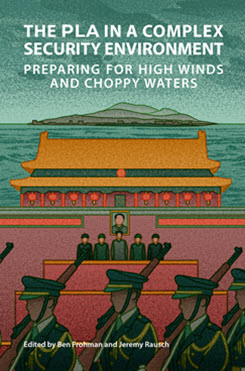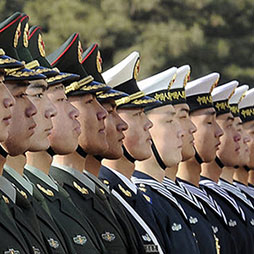Book from the People's Liberation Army Conference
PRC Lessons Learned from Russia’s Invasion of Ukraine: Implications for a Taiwan Conflict
This chapter examines how the conflict in Ukraine has influenced the calculus of the People’s Republic of China (PRC) for determining both whether to use military force in pursuit of political aims and how to use force most effectively.
EXECUTIVE SUMMARY
MAIN ARGUMENT
Beijing is carefully studying Russia’s faltering invasion of Ukraine and drawing lessons that inform its views on future warfare. PRC scholars assess that the risk of a protracted, costly, potentially disastrous great-power conflict has increased. To address this, they urge leaders to (1) improve deterrence capabilities, (2) avoid unnecessary conflict, and (3) prepare alternative means to resolving conflict to include the use of proxy wars and irregular warfare. PRC international security scholars are developing a renewed appreciation for the wide range of nonkinetic options available to sympathetic nations to support a nation resisting aggression, including economic sanctions and rapid provision of arms, material information, and intelligence support. PRC scholars portray the current conflict in Ukraine as deadlocked and treat the use of nuclear weapons as a real possibility. They also predict that many countries will observe the fate of Ukraine and decide to develop their own nuclear weapons programs. Some PRC observers portray U.S. efforts coordinating international support to Ukraine as a guide for predicting U.S. actions in the event of a Taiwan contingency.
POLICY IMPLICATIONS
- The U.S. and the West’s demonstrated capacity to rapidly field an integrated slate of economic sanctions, material aid, weapons, and intelligence support in the face of Russian aggression has the potential to serve as a deterrence multiplier against the PRC.
- Uncertainty surrounding continued support to Ukraine may weaken U.S. deterrence in a Taiwan contingency, given that PRC analysts portray U.S. support to Ukraine as a useful proxy for assessing U.S. capacity to sustain persistent support in a protracted conflict.
Maryanne Kivlehan-Wise is Director of the China Studies Program at CNA.
Tsun-Kai Tsai is a Senior Research Specialist in the China Studies Program at CNA.
This chapter represents only the views of the authors and not those of CNA or any of its sponsors, including the U.S. Navy, or the U.S. government.



